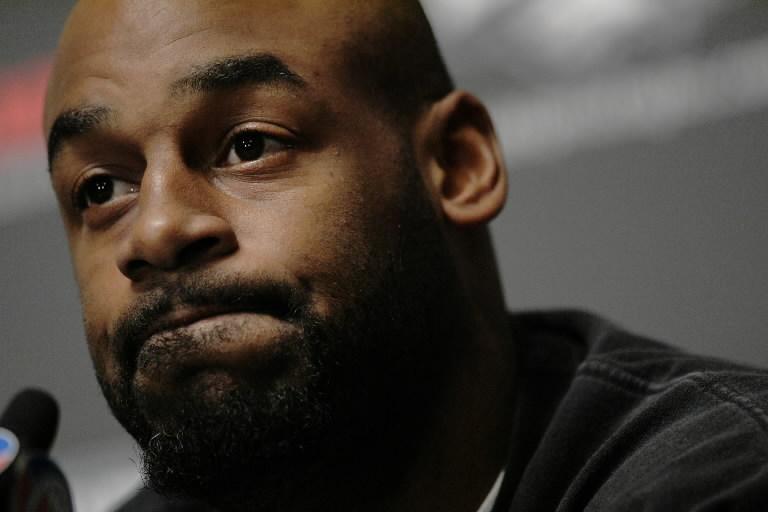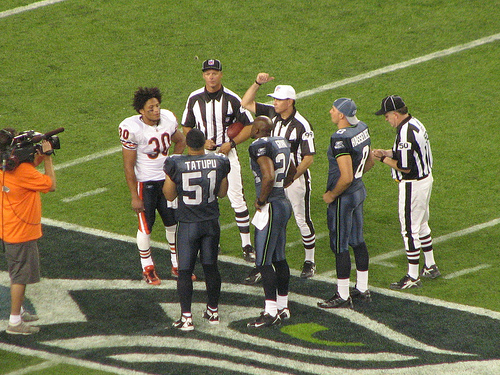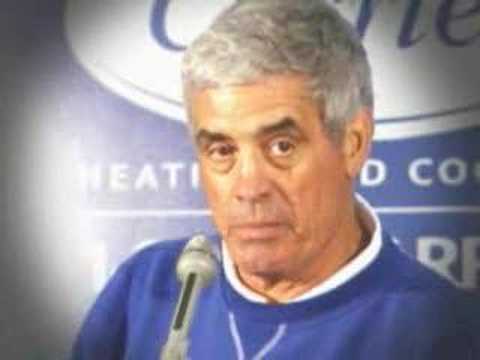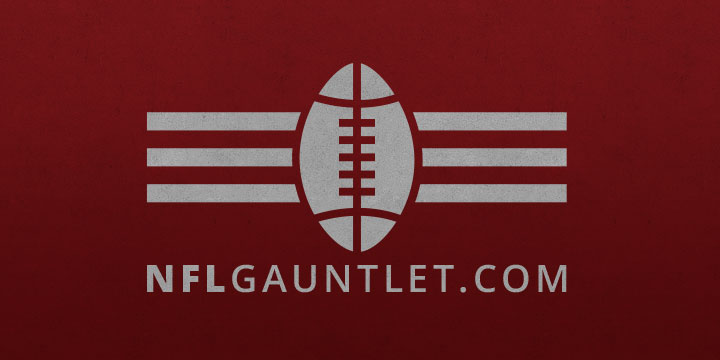Football has been around nearly 150 years, and in that time the game’s rules have been tweaked to near perfection. The one problematic spot in the football rulebook pertains to overtime and how games tied after regulation should be decided. I’ve thought long and hard about why the current overtime solutions are inadequate, and have come up with a few alternative solutions that I think are superior. (This post is long, so click here to skip to “The Problem”, and here for “The Solution”, I won’t be offended)
The Status Quo
A lot of you probably understand the differences in rules, but just in case you’re not sure, let’s compare the two systems briefly (dont feel bad, Donovan McNabb gets paid millions of dollars a year to play football, and he doesn’t even know the rules). When four quarters have been completed in an NFL game and the score is tied, a coin toss takes place in a manner similar to the start of a game. One team kicks off to the other and 15 minutes are put on the clock. The first team to score in that 15 minutes wins and if no one scores, the game goes in the books as a tie (the lone exception being playoff games, which continue until one team wins). No one likes ties, but there have only been 17 since the NFL began using this format in 1974.
Recently, in an attempt to save face after the 2010 NFC Championship Game where Saints won on a field goal in overtime without the Vikings ever getting the ball, the NFL came up with and approved a new overtime system, which at this time only applies to playoff games. Basically, if the team that wins the opening kickoff scores a field goal or is held scoreless, the other team gets an opportunity to win or tie the game, at which point the game becomes sudden death. If the team receiving the opening kickoff scores a touchdown, they win, and their opponent will not get the ball. This format hasn’t been used yet, and no one really knows how it will play out and what strategies coaches will use.
The NCAA overtime format is quite a bit different. A coin toss is performed and one team starts with the ball at their opponent’s 25-yard line. From there, that team plays by standard rules until they either score or turn the ball over. Then, the opposing team starts from the opposite 25-yard line and gets a chance to score. If the game is still tied after the second team’s possession, the process is repeated until one comes out ahead. Also, starting with the third overtime period, teams that score a touchdown must attempt a 2-point conversion rather than kicking an extra point.
The Problem
So, we’ve established the current rules, now what? Every time I see a game going to overtime, I get a little bit nauseous. Both the college and NFL systems leave a bit to be desired in my opinion, and some things should be altered to resolve the outcomes of these games without leaving too much to chance or changing the way the game is played.
NCAA Rules
Inflated stats
Although this is a secondary concern, the short fields can lead to boatloads of extra points, and inflated statistics as a result. 13% of Eli Manning’s touchdown passes in his 2001 season at Ole Miss came in the 5 overtime periods of one game against Arkansas. In a Heisman race, why should a touchdown from a 25-yard field count the same as one in the normal flow of a game?
2-point conversions?
I mentioned above that in college, starting with the 3rd overtime period teams that score a touchdown must attempt a 2-point conversion rather than kicking an extra point. Why the third overtime and not the second or fourth? This is completely arbitrary. If you’re going to make teams go for two, make them go for two on every overtime touchdown.
Field position
Teams start at their opponent’s 25-yard line, well within field goal range for many college kickers. So, a team could get zero yards on first through third down, maybe even take a sack or lose yardage and still have a chance to put points on the board. By starting teams so close to the endzone, a situation is created where a defense can play extremely well and still end up with their team giving up points, a far cry from the circumstances faced during regulation play.
Playing style & game flow
This is my biggest beef with the college overtime system. In theory, it’s great to have both teams get a chance to score, which helps minimize the effects of the coin toss (though the team going 2nd in an overtime period has the less-obvious yet significant advantage of knowing what the first team did). But, by alternating possessions automatically, and giving teams the ball at the 25, special teams (with the exception of field goals) is completely eliminated, defenses have their backs against the wall from the get-go, and the all-important element of field position is completely removed from the game.
In this system, great kick returners like Devin Hester never get a chance to touch the ball and do what they do best (Note: Hester’s Bears lead the league in average starting field position, no doubt a result of his brilliant return ability and a part of Chicago’s success this season). The same is true for punters (yes, even punters win games) and even to an extent deep-threat receivers, like DeSean Jackson, whose explosiveness is tempered by the short fields.
Also, if a team’s offense turns the ball over or misses a field goal, their defense has little chance to impact the overtime. In this season’s epic Boise State-Nevada game, Boise kicker Kyle Brotzman missed a relatively short field goal at the end of their possession. At that point, the Boise State defense had no chance. Nevada could be as conservative as they wanted, knowing that they were already in field goal range. Normally, forcing a 4th and 2 to start a possession would be a success for a defense, but with these overtime rules, it means three points, and in this case a loss and elimination from BCS bowl contention.
NFL Rules (sudden death, regular season)
The Almighty Coin Toss
All the above flaws of the college rules (and the new NFL playoff rules) are eliminated in the NFL sudden death overtime system, but a different drawback arises. Because even a field goal is enough for a sudden death win, the team that wins the coin toss has a 60% chance of winning (though in 2010 teams that lost the coin toss are 11-8) the game (whereas ideally each team would have an equal chance of winning an overtime game).
NFL Rules (playoffs)
Playoffs Only?
I’m not sure why they would even vote on a major gameplay rule and have it only apply to playoff games, when a regular season game could just as easily eliminate a team from contention. Also, it’s crazy to use playoff teams as guinea pigs for untested rules.
Over-complication & Gameplay
It’s a little too complicated (OT rules shouldn’t require one of my colleagues Brian to write a 2300-word post explaining the possible scenarios). Because of the strange rules, it will create situations where a team will forgo punting on 4th down, even if the distance and field position would normally be a clear punting situation. It should be the goal of an overtime system to as closely replicate the regulation gameplay feel as possible, and these rules are just a bizarre middle ground between the college and sudden death NFL systems.
Halfway There
These new rules are intended to solve the issues created by the NFL’s sudden death system, involving the seemingly overwhelming power of the coin toss. However, these changes still give an advantage to the team who receives the coin toss. First, they can win the game with a touchdown without their opponent getting the ball. Second, in the event that both teams score a field goal or neither score at all, the team that received the ball first will have the first possession when the game reverts to sudden death. I mentioned above that with the sudden death NFL rules, that the team who gets the ball first wins about 60% of the games, and while the advantages in favor of the receiving team may not be as obvious with the new system, I’d venture to say that, with the new rules, the percentage will be similar.
The Solution
Now comes the hard part. There are three criteria that I think should be required of any system seeking to determine the outcome of a game when regulation ends in a tie:
1) No ties. Baseball rule-makers decided decades ago that ties were no good, and I think most of us would agree that was a good thing.
2) Simulate regulation game play as much as possible. I harped on this in the above section, but it’s bothersome to me when an overtime system introduces situations or removes elements from what happens during the course of regulation play.
3) Don’t give an arbitrary advantage to either team. Because football is a sport with alternating offensive possessions, one team must start with the ball. Since there’s not a good way to decide who gets the ball first (like a basketball tip-off), all of the current systems use a coin toss, which isn’t ideal, even in those systems where both teams are guaranteed at least one possession.
With those criteria established, here are a few solutions that I’d prefer to the current rules in both college and the NFL. Some are obvious, some are crazy and some I found elsewhere:
Extra quarter(s)
If you want to decide things fairly, why not just play an extra 15 minutes? Many sports (e.g., basketball, hockey) use extra periods to decide tie games (though these other sports often use shorter periods, this ultimately wouldn’t work with football because a team could use all the clock in 5 or 10 minute periods). Traditionally, the argument against this has been that with a physical/violent sport like football, that a whole extra quarter of gameplay would lead to additional injuries and fatigue in future weeks (this being one reason to use the current sudden death system). However, with the new NFL overtime system requiring multiple possessions in some cases and the college system where games routinely go 2 or 3 overtime periods and occasionally 6 or 7, the increase in the number of plays over these systems shouldn’t be too significant. Of course, the potential exists for the first overtime period to be tied, in which case another would have to be played or a different method used. That would lead to even more plays, but at a certain point, if neither team can hold on to a lead, they deserve to be tired the next week. That motivation to not play any extra snaps could also give teams incentive to be aggressive in the fourth quarter, rather than just running down the clock for the chance to win a coin toss. Also, it would have to be decided what to do when both teams are tied after the first overtime period, and whether to extend the game even further or end it with sudden death.
Sudden death (with Field Position Auction)
This is a seemingly-radical idea, but the more I think about it, the more I like it. It’s covered in detail here, but the basic idea is that the two teams “auction” field position to determine who is willing to start with the ball close to their goal line. To clarify, it’s an obvious advantage to start a sudden death overtime with the ball at midfield, but what about if you were given the ball at your own 5? Your chances of scoring decrease drastically. If one team is willing to start at the 25, but the other at the 24 they would get the ball first at that yard line. There are a number of ways the auction could take place discussed in the above link.
This system gives teams the benefit of adjusting their bid to fit the style of play of their team or any weather conditions. Most importantly, it’s not random so teams would have to deal with the consequences of their strategy. This is cool in theory, but NFL coaches who can’t master basic clock management would never allow something like this, with its obvious strategic intricacies, to be implemented.
Sudden death (with Preserved Alternating Possessions)
This is the idea I came up with that inspired this massive post. In my mind, the biggest problem with using a coin toss in overtime is that the possibility exists for a team to erase a deficit and then go on to win the game without their opponent getting a meaningful possession. For example, let’s say Team A is trailing Team B 7-14. Team A scores a touchdown as time expires to tie it, gets the ball first and kicks a field goal to win. In that 10-0 Team A run, Team B never got the ball.
The issue shouldn’t be whether or not teams each get a possession in overtime. After all, the now-or-never moments are part of what makes sports great. In overtime, both the offense and the defense should be treating each possession like it will be their last. The problem is really occurs when the alternating possessions that teams normally get are disrupted by last-second scores and coin tosses.
The solution is this: overtime remains sudden death, but instead of a coin toss, the team that scored last in regulation (Team A in the above example) automatically kicks off to the other team. Team B will have that 60% advantage in overtime, but it’s not unwarranted. This would not only ensure that both teams have meaningful possessions with a chance to win, but it would also discourage teams from just running out the clock (which no one wants to see) in regulation if they know that the other team will be getting the ball first in OT (and as a result, their opponent will be less likely to do the same and just punt it away, knowing that the increased urgency exists). So, not only does this system remove some of the arbitrariness of the coin flip, but, by ensuring that teams play out the entire 4th quarter, rather than just running out the clock in the final minutes, it can actually prevent overtime from occurring.
So there we have it, why overtime sucks and how to fix it. It’s pretty clear that the current systems should be improved so that they are fair and that they replicate the style of play during regulation as closely as possible. Just a few small changes and we can give the games we love the endings they deserve.







I like your idea, and I definitely see the benefits–especially reducing running out the clock; that’s an interesting aspect. You’re also not really adding much wear and tear to the players.
I definitely second the motion to make the regular season rules = the playoffs rules. Why should playoffs be the guinea pig? Another part of the Year of Goodell that kind of stinks.
My vote for overtime rules is to keep the coin flip sudden death, but if the first drive ends with any offensive score you kick off and the other team has 1 drive to tie things up; if they do, play continues with a kick off but it’s sudden death. No one at that point could whine about the coin flip as both coaches had a chance to go for 2, or go for it on fourth down instead of kicking a field goal. It would only make a few games longer.
Your idea won’t reduce running out the clock. It’s great if Team A ties the game with a few seconds left. However, suppose that they tie it with 2 minutes remaining. Under current rules, Team B would have the incentive to try to get into field goal range (and is there anything more exciting than an end-of-game 2-minute drill?). Under your proposed rule, Team B knows that they get the ball first in overtime. Their incentive isn’t to take risks to push the ball down the field to try to get into field goal range. Rather, they have the incentive to be conservative. If they can get the ball into field goal range, then great. If not, that’s fine too. Effectively, they get two sudden-death possessions in a row.
Again, your plan is fantastic (and fair) if the final score was in the last few seconds. But if the last points were scored a few minutes before the end of the quarter, things change, and the rule has the opposite effect as intended. Moreover, if the last points weren’t scored in the final few minutes of the game, this rule is even more arbitrary and unfair than a coin toss. If Team A tied the game with 2 minutes left in the third quarter, both teams should have had several opportunities to take the lead in the fourth. Why does Team B deserve the ball any more than Team A in this scenario? At least with a coin toss, each side has a 50-50 chance of holding the advantage (and neither team knows who will have this advantage during the waning minutes of the fourth quarter– and this knowledge will change the behavior of the teams).
The bidding system is superior to all other options. If coaches are too stupid to understand risk-reward, they shouldn’t be coaches anyway.
I don’t have a problem with ties either. Football is a far more physically demanding game than baseball– you can’t expect the players to just keep going indefinitely. There isn’t a reasonable way to do a hockey-style shootout. Besides, as you pointed out, ties almost never happen anyway. The argument that if a team cannot score during overtime they deserve to be fatigued the following week is an offense-centric view. Personally, I would be impressed with the performance of the defenses if both teams managed to accomplish this task. Teams shouldn’t be punished for good defensive play.
I understand what you’re saying, and as much as I’d like to argue with you, it seems like mostly a difference of opinion, rather than a logical thing.
I agree that the bidding system would be great, and it is significantly better than the terrible scheme the NFL came up with for the playoffs.
Thanks for taking the time to read the post.
I agree with that mattaquiline… only i’d change one minor thing. If the team that gets the ball 2nd is only going to get 1 guaranteed possession… it should be ossible for them to win. So…
Team A gets the opening kick off… ifthey score a TD, they cannot score a 2 pt conversion. The most points they can score on 1st poss of OT is 7. Then Team B would have the option of going for 2 if they wanted (8-7). They would not have to, but if the first 2 possessions end up 0-0 or 3-3 or 6-6 or 7-7, then Team A gets fiest possesion of sudden death